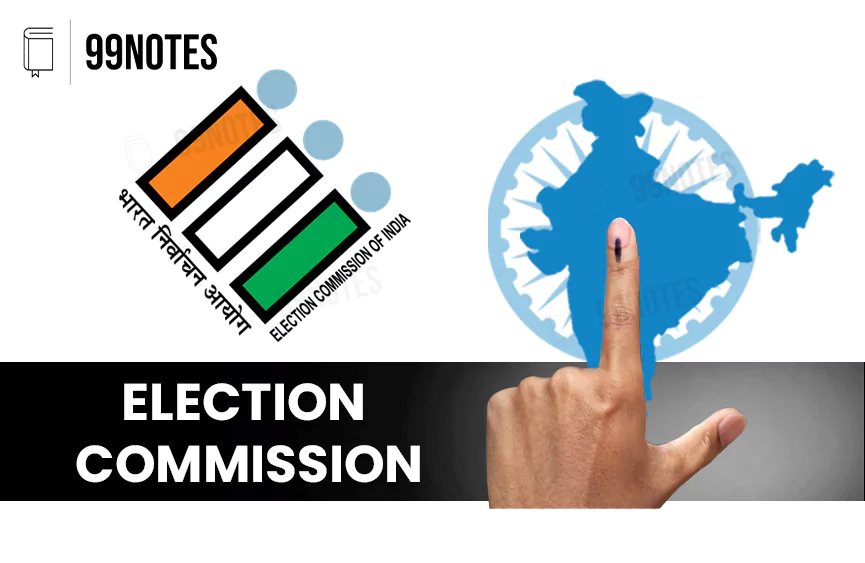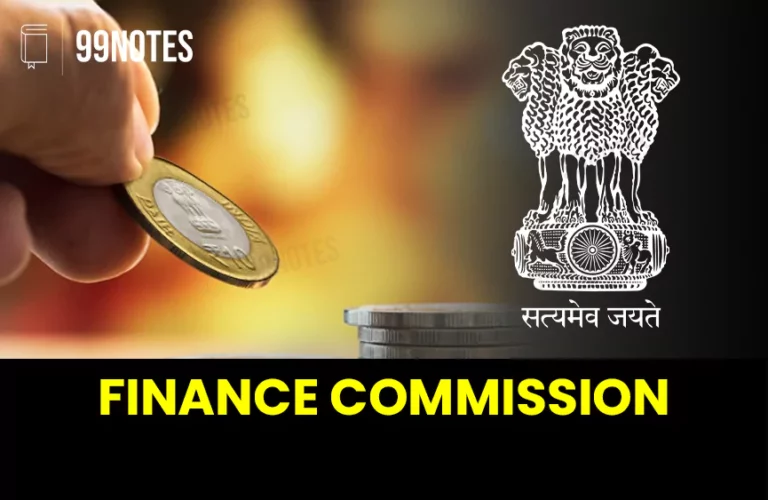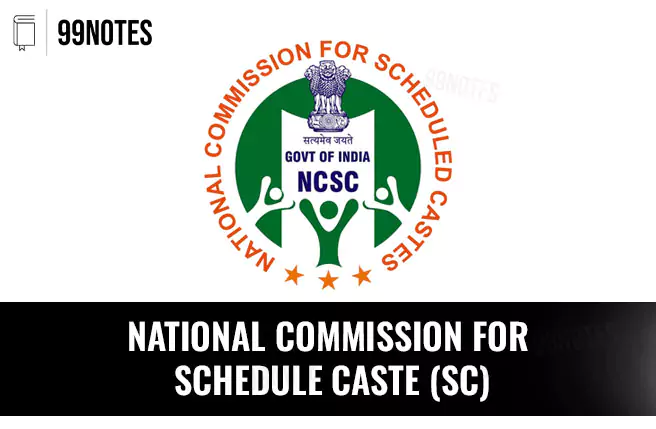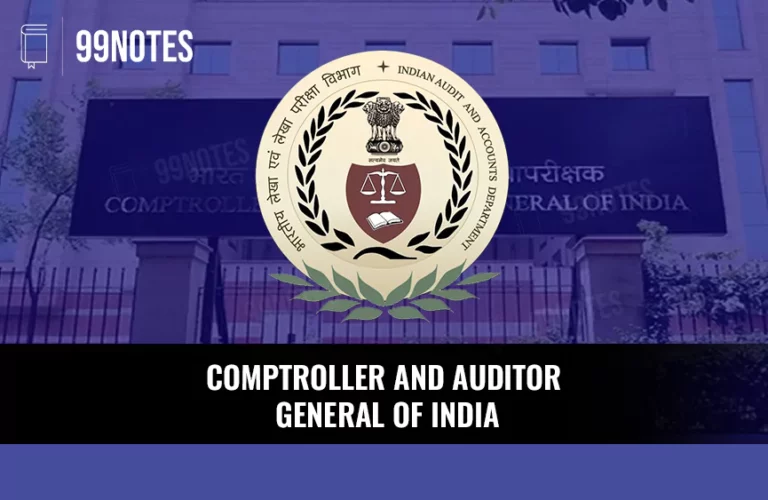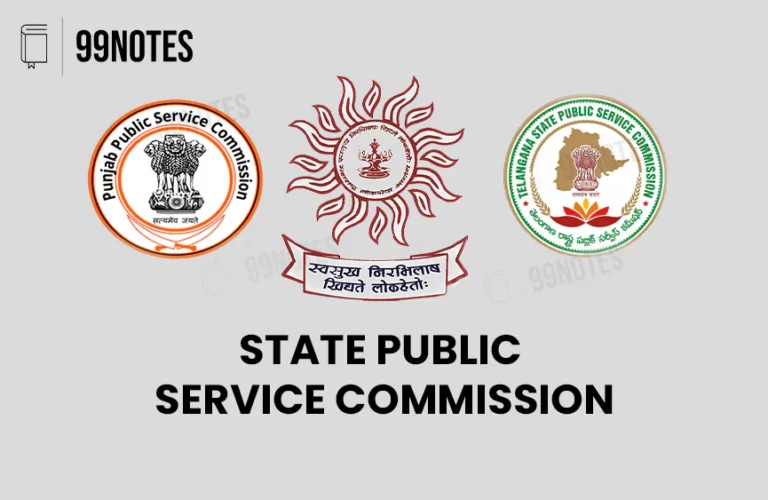Election Commission of India Notes For UPSC
Election Commission of India
Election Commission of India (ECI) is a constitutional body constituted under Article 324. Being a permanent and autonomous body, it is endowed with the responsibility of conducting elections of the President of India, Vice-President, members of Lok Sabha, Rajya Sabha, State Legislative Assembly and the Legislative council fairly and transparently.
The success of Indian democracy can be attributed to the people’s confidence and their involvement in the political process. The Election Commission is the backbone of democracy, upholding the wishes of voters in a large and populous country like India.
Note: The elections to panchayats and municipalities in the states are conducted by the State Election Commission (formed after the 73rd and 74th Constitutional Amendments).
Sh. Rajiv Kumar is the existing Chief Election Commissioner of India.
Constitution of Election Commission of India
Part XV (Articles 324 to 329) of the Indian Constitution deals with elections in India. Article 324 states that the Election Commission shall be vested with the power of superintendence, direction and control of elections.
Article 324 of the Indian Constitution states that:
- The Election Commission will be composed of the Chief Election Commissioner and such other number of Election Commissioners as the President may fix.
- The President of India appoints the chief election commissioner and other election commissioners. This is obviously done with the “aid and advice” of the government.
- The Chief Election Commissioner acts as the Chairman of the Election Commission if any other Election Commissioner is appointed.
- The President is also entitled to appoint Regional Commissioners to assist in the performance of election functions after consultation with the Election Commission.
- The President shall determine the conditions of service and tenure of office of the regional commissioners and the election commissioners.
Currently, the Election commission of India is a three membered Constitutional body, with Chief Election Commissioner (CEC) being the chairman and two other ECs. If there is a difference in opinion between the CEC and other ECs, then the matter is decided by the majority.
| Election Commission – a single-member or multi-member body? |
| Till 1989, the Election Commission worked as a single-member body with only one Chief Election Commissioner. However, with time, its status was changed several times:
1. Congress Government (just a week before the 9th general election) appointed two more Election commissioners due to the increased workload on account of reduced voting age from 21 to 18. 2. In 1990, the National Front government again made it a single-member body. 3. In 1993, again, the Commission was transformed into a multi-member body with 2 Election Commissioners headed by the Chief Election Commissioner. |
Emoluments and Tenure of Election Commission
Article 324 mentions that the Chief election commissioner can be removed from his office in the manner of a Judge of the Supreme Court and their conditions of service cannot be varied to their disadvantage after the appointment.
Further, the 1991 Election Commissioner act equate the salaries, allowances, and other benefits of CEC and other ECs similar to that of a Supreme Court judge.
Removal of Chief election Commissioner
- CEC can be removed before the expiry of their term only through 2/3rd majority of the total membership of either house of the Parliament, on grounds of proven misbehaviour or incapacity.
- They can also resign before the completion of the term.
- They hold office for six years term or until the age of 65 years, whichever is earlier.
Appointment of the CEC
According to Article 324, President can the appointment of the Chief Election Commissioner, subject to the provisions of any law made in that behalf by Parliament.
The Parliament passed the Election Commission (Conditions of Service of Election Commissioners and Transaction of Business) Act, 1991 (Link). However, this law remained silent on the matter of appointment of the Chief Election commissioner.
Therefore, till now the Government unilaterally appointed the Election commissioner of India. But this was challenged in 2015 in the Anoop Baranwal Case.
Anoop Baranwal vs. Union of India
In this landmark judgment given in November 2022, the Supreme Court devised a three-member committee for the selection of the Chief Election Commissioner and Election Commissioners. The committee consisted of:
- Prime Minister
- Leader of Opposition in the Lok Sabha or the Leader of the single largest party in the Lok Sabha
- Chief Justice of India.
The judgment was pronounced with the objective of maintaining the independence of the Election Commission.
However, the government has introduced a bill in the Rajya Sabha aimed to keep the effective power of appointment to itself.
Powers and Functions of Election Commission of India
The Election Commission has the following powers and functions:
1. Administrative Function of ECI
- Determination of the territorial areas of electoral constituencies on the basis of the Delimitation Commission Act.
- Recognising political parties and allotting election symbols to them. Preparing and periodically revising electoral rolls and registration of all eligible voters.
- Supervision of elections to ensure free and fair elections. Poll cancellation in case of rigging, booth capturing, violence and other irregularities.
- Notification of dates and schedules of elections and scrutinising nomination papers.
- Determination of the code of conduct for political parties and the candidates during elections.
- Roster preparation for political parties to publicise their policies on radio and TV during elections.
- Request the President or the Governor for requisitioning of staff necessary to conduct elections.
2. Quasi-judicial and Advisory function
- Appointment of officers to inquire about disputes relating to electoral arrangements.
- Disputes regarding the recognition of Political Parties: It decides issues regarding the recognition of political parties and the assignment of election symbols.
- Splits/ mergers of recognised political parties: Quasi-judicial power is entrusted to the Commission to resolve issues arising from splits/ mergers of recognised political parties.
- Binding advice on disqualification of members: It advises the President and Governors of the states on matters relating to disqualifications of members of Parliament and members of the State Legislature,
- Disqualification if found guilty of corrupt practices: The Supreme Court and High Courts refer to the Commission for its opinion in cases of persons found guilty of corrupt practices at election on whether such person shall be disqualified.
- Disqualification on Failure to lodge election expenses: The candidate must disclose their election expenses within the prescribed time. Failure to lodge election expenses can lead to disqualification by the Commission.
- Advice for states under President’s Rule: Advising the President if elections can be held in a state under President’s rule to prolong the period of emergency after one year.
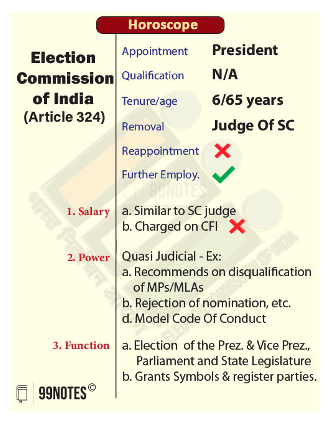
Independence of Election Commission
In order to ensure the independence and impartiality of the Election Commission, the Constitution has made the following provisions:
- Removal of CEC: The chief election commissioner has secured tenure as he can only be removed from his office in the same manner and on the same grounds as a Supreme Court judge.
- Removal of Other ECs: A regional commissioner or any other election commissioner can be removed from office by the President only on the recommendation of the CEC. Thus, the integrity of the Election Commission depends on the integrity of the Chief Election Commissioner.
- Condition of Service & Tenure: determined by the President
-
- Once appointed, the service conditions of the CEC cannot be varied to his disadvantage.
- Currently, the term is 6 years or until 65 years of age, whichever is earlier.
Limitations to Election Commission:
- Selection of the members of the Commission: Election Commissioners are appointed by the President on the advice of the Council of Ministers.
- Qualification not prescribed: The qualifications of the members of the Election Commission are not mentioned in the Constitution.
- Ambiguity in term: No specific term for members of the Election Commission is prescribed in the Constitution.
- No bar to post-retirement appointments: Retiring ECs are not debarred from further appointments by the government, making them susceptible to acceptance of post-retirement benefits, which can influence their independent decision-making ability while being in office.
- Financial independence: The budget of the Election Commission is not charged to the Consolidated Fund of India, which impacts its independence and financial autonomy.
- The ECI itself has no full-time staff in the field, and it relies heavily on state and local governments
- Unequal Position of ECs vis a vis CEC:
- The ECs are equal on appointment but unequal on removal.
- While CEC can be removed in the same method as that of the Supreme Court Judge, ECs can be removed by the President on a mere recommendation of CEC.
- SC has in the past pointed out the inequality between CEC and other ECs in the dispute concerning former CEC Navin Chawla (who was allegedly leaning towards INC).
- While the current tradition is that one of the ECs will be promoted to CEC in order of seniority, this is only convention. The lack of clear rules potentially renders the ECs vulnerable to government pressures.
- Insufficient regulation powers:
- Inadequate powers to regulate the political parties, e.g., it has no power to enforce inner party democracy and control party finances.
- Under Section 29A of the Representation of the People Act, 1951, the Election Commission has the power to register a political party. Still, it has no power to de-register a party even for blatant violation despite having absolute power as vested under Article 324.
- Inefficiency in handling malpractices: The Election Commission is unable to effectively control the criminalisation of politics and the use of money and muscle power during elections.
- Misconception of losing neutrality: There is a thought gaining ground that the Election Commission is losing its independence and tilting towards the government in power, which has negatively impacted the sacred image of the institution.
The Chief Election Commissioner and Other Election Commissioners (Appointment, Conditions of Service and Term of Office) Bill, 2023
This bill seeks to repeal the Election Commission (Conditions of Service of Election Commissioners and Transaction of Business) Act, 1991.
Provision of Appointment in the Bill:
As per the bill, a Search Committee shall prepare a panel of five persons for consideration of the Selection Committee.
- The Search committee will be headed by the Cabinet Secretary and comprising of two other Secretary-level officer of the Government of India, having knowledge and experience in matters relating to elections.
- The Selection Committee consists of:
- Prime Minister as Chairperson
- Leader of the Opposition (LoP) in Lok Sabha as member,
- The Prime Minister nominates a Union Cabinet Minister as a member.
- The Chief Election Commissioner (CEC) and other Election Commissioners (ECs) will be appointed by the President on the recommendation of a Selection Committee
Other Provisions
Most other provisions are similar to the 1991 act.
- Qualification for CECs and ECs: Persons holding or have held posts equivalent to the rank of Secretary under the central government will be eligible to be appointed. Provided that such persons have expertise in managing and conducting elections.
- Salary, allowance and service conditions: The Bill provides that salary, allowance and service conditions of the CEC and other ECs be the same as those of the Cabinet Secretary. At the same time, the 1991 Act specifies a salary that is the same as that of a Supreme Court judge.
- Reappointment: The CEC and other ECs will not be eligible for reappointment.
- Appointment not to be impacted due to vacancy: The selection of CEC and ECs will not be void due to any vacancy or defect in the Constitution of the Selection Committee.
Main concerns regarding the bill
- Imbalanced power distribution in the Selection Committee: A three-member committee dominated by the Prime Minister and a nominated Cabinet Minister skewed the selection choice in favour of the government of the day, while the Leader of the Opposition is left with a minority vote that can easily be overpowered.
- Leader of Single Largest Party not involved: Since the last two Lok Sabha, there hasn’t been a Leader of opposition in the Lok Sabha. Therefore, in the Supreme court judgement, made of provision of leader of single largest party to be the member of the committee. In case there is no LoP, there is no provision for the member of single largest party to be a part of this committee. Thus, such as in the present situation, the ruling party can by itself appoint the Chief election commissioner.
- Impartiality of Election Commission: It can seriously affect the ability of the Election Commission to work independently and fairly. Any perceived influence of the Executive in the selection process might degrade people’s trust in the Commission’s ability to conduct elections without bias.
Way Forward
As we have seen, there had been some serious concerns regarding the independence of the election commission of India. In this context, various recommendations have been made so far:
- Independent Secretariat: Goswami Committee on Electoral Reforms (1990) & 255th Report of Law Commission (2015) – proposed the setting separate and independent secretariats of the ECI and state election commission. Currently, they use the administrative machinery of the Government in order to function.
- Appointment and terms of Service: According to the Dinesh Goswami committee the terms of service of the members of Election commission of India should be similar to the Supreme Court Judges. And these must be clearly mentioned in the constitution itself.
- Reappointment of the CEC & Other ECs should not be allowed, and they should be ineligible to be the Governor of any state, as per the Dinesh Goswami committee.
- Financial independence for the EC: The administrative expenditure of the Election Commission of India should be charged to the Consolidated Fund of India to secure its independent functioning.
- Strengthen the power of the EC: Providing the Election Commission of India with the authority to sanction candidates for providing misleading or false information. More power to regulate political parties to curb money and muscle power in the election.
Undoubtedly, the Election Commission’s role is integral for conducting free and fair elections. The Election Commission has, in general, manifested the vision of true democracy as envisioned by our forefathers while enacting the Constitution.

